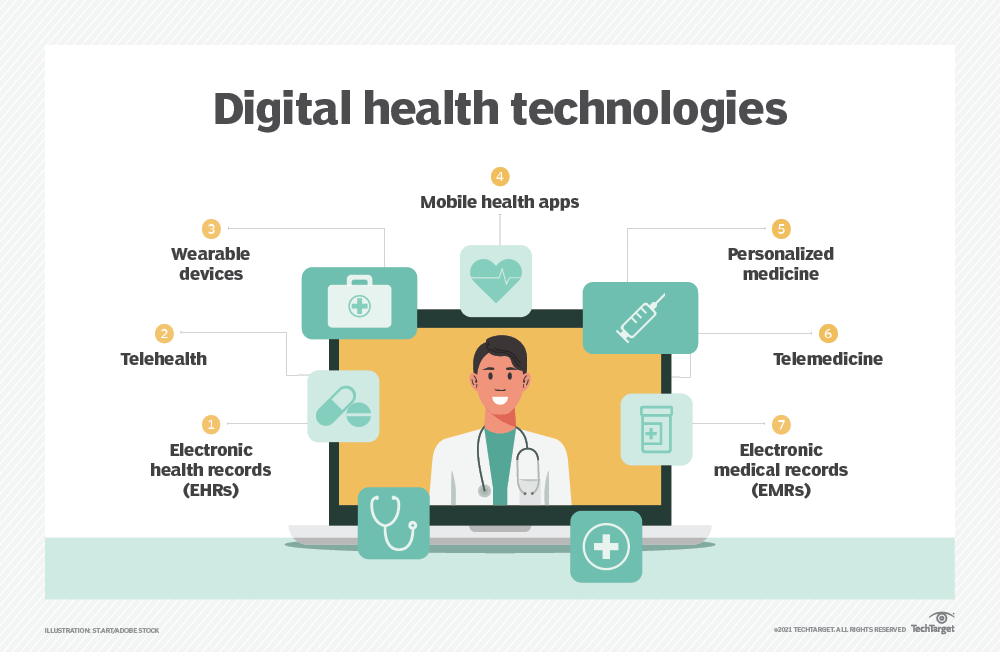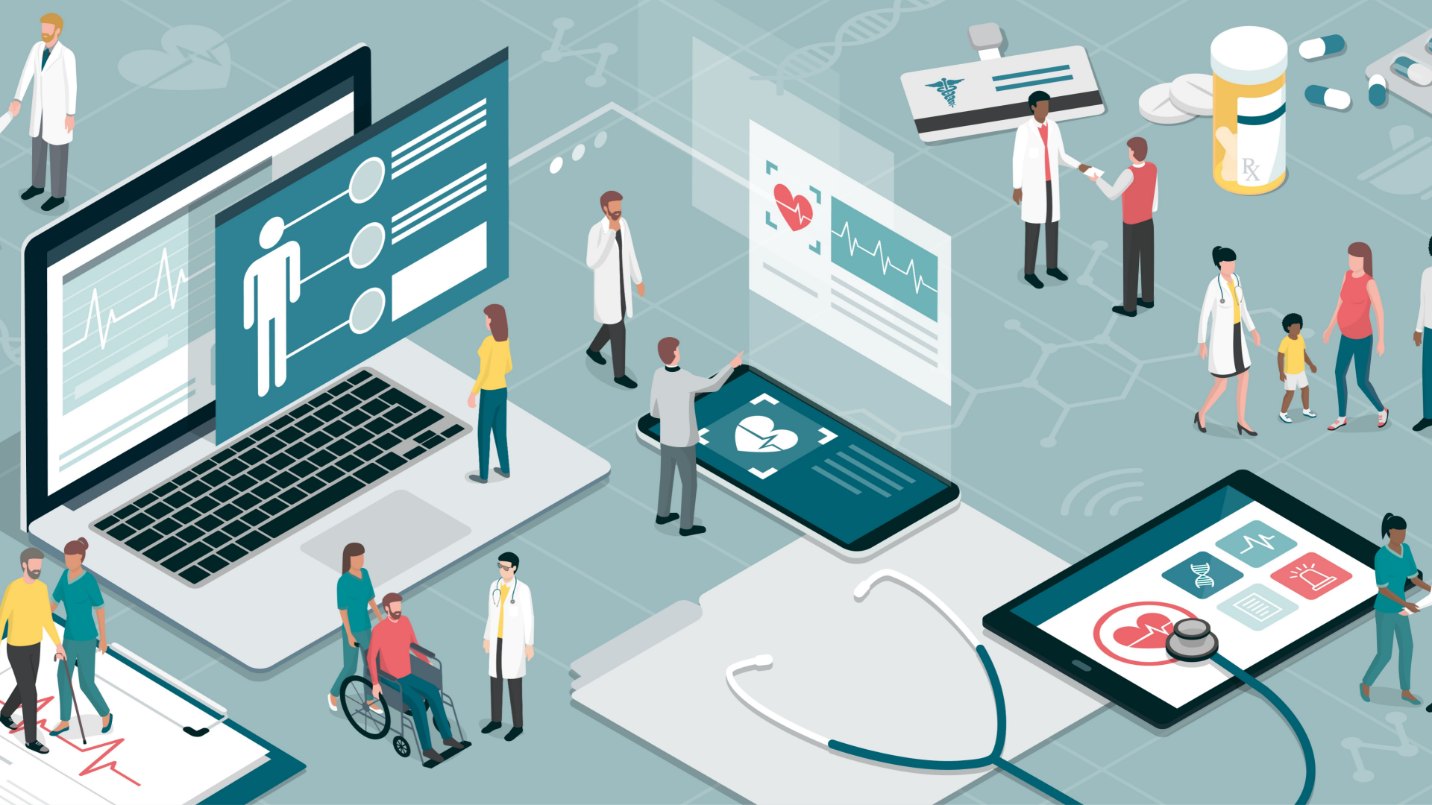The healthcare landscape has undergone a significant transformation over the past decade, driven by technological advancements and the increasing demand for accessible and personalized care. Among the most notable innovations are digital health apps, which have emerged as powerful tools for enhancing patient engagement and improving health outcomes. This article delves into the growth of digital health apps, exploring their impact, benefits, and the future of patient engagement in the digital age.
The Rise of Digital Health Apps
Digital health apps have seen exponential growth in recent years, fueled by the widespread adoption of smartphones and the increasing availability of high-speed internet. According to a report by Grand View Research, the global digital health market is expected to reach $509.2 billion by 2025, with digital health apps playing a significant role in this expansion. These apps encompass a wide range of functionalities, including fitness tracking, chronic disease management, mental health support, and telemedicine services.
Factors Driving the Growth
Several factors have contributed to the rapid growth of digital health apps:
- Technological Advancements: The proliferation of smartphones, wearables, and other connected devices has made it easier for individuals to access health-related information and services. Innovations in artificial intelligence (AI) and machine learning (ML) have also enabled the development of more sophisticated and personalized health apps.
- Consumer Demand: As people become more health-conscious, there is a growing demand for tools that can help them monitor and manage their health. Digital health apps offer a convenient and accessible way for individuals to take control of their well-being.
- Healthcare Provider Adoption: Healthcare providers are increasingly recognizing the value of digital health apps in improving patient engagement and outcomes. Many are integrating these apps into their practice to enhance patient care and streamline communication.
- Regulatory Support: Governments and regulatory bodies are beginning to acknowledge the potential of digital health apps in transforming healthcare delivery. Policies and guidelines are being developed to ensure the safety and efficacy of these apps, further driving their adoption.
Benefits of Digital Health Apps
Digital health apps offer numerous benefits for both patients and healthcare providers, making them an essential component of modern healthcare.
Enhanced Patient Engagement
One of the most significant advantages of digital health apps is their ability to engage patients in their own care. These apps provide patients with real-time access to their health data, enabling them to make informed decisions about their treatment and lifestyle choices. Features such as reminders for medication, appointment scheduling, and personalized health tips help patients stay on track with their health goals.
Improved Health Outcomes
Digital health apps can lead to better health outcomes by facilitating early detection and intervention. For example, apps that monitor vital signs or track symptoms can alert patients and healthcare providers to potential health issues before they become severe. Additionally, apps that support chronic disease management can help patients adhere to treatment plans and reduce the risk of complications.
Increased Accessibility
Digital health apps break down barriers to healthcare access by providing remote monitoring and telemedicine services. This is particularly beneficial for individuals in rural or underserved areas who may have limited access to healthcare facilities. Telemedicine apps enable patients to consult with healthcare providers from the comfort of their homes, reducing the need for in-person visits.
Cost Savings
By reducing the need for frequent in-person visits and hospitalizations, digital health apps can lead to significant cost savings for both patients and healthcare systems. Remote monitoring and telemedicine services can help prevent costly complications and improve the efficiency of healthcare delivery.
Personalized Care
Digital health apps leverage AI and ML to provide personalized health recommendations based on individual data. This tailored approach ensures that patients receive care that is specifically suited to their needs, leading to more effective treatment and better health outcomes.

Challenges and Considerations
While digital health apps offer numerous benefits, there are also challenges and considerations that need to be addressed to ensure their effective implementation and use.
Data Privacy and Security
The collection and storage of sensitive health data raise concerns about privacy and security. It is crucial for app developers to implement robust security measures to protect patient information and comply with regulations such as the Health Insurance Portability and Accountability Act (HIPAA).
User Engagement and Adherence
For digital health apps to be effective, users must consistently engage with them and adhere to their recommendations. App developers need to focus on creating user-friendly interfaces and incorporating features that encourage sustained use, such as gamification and social support.
Integration with Healthcare Systems
To maximize their impact, digital health apps must be seamlessly integrated with existing healthcare systems. This requires collaboration between app developers, healthcare providers, and IT professionals to ensure interoperability and data sharing.
Regulatory Compliance
As the digital health app market continues to grow, regulatory bodies are developing guidelines to ensure the safety and efficacy of these tools. App developers must stay informed about regulatory requirements and ensure their products comply with relevant standards.
The Future of Patient Engagement
The growth of digital health apps marks the beginning of a new era of patient engagement, with the potential to revolutionize healthcare delivery. As technology continues to advance, we can expect to see even more sophisticated and personalized health apps that empower patients to take control of their health.
Integration with Wearables and IoT
The integration of digital health apps with wearable devices and the Internet of Things (IoT) will enable continuous monitoring of health parameters, providing real-time insights and enabling proactive care. For example, wearable devices that track heart rate, sleep patterns, and physical activity can sync with health apps to provide a comprehensive view of a patient’s health.
AI and Predictive Analytics
The use of AI and predictive analytics in digital health apps will enable more accurate predictions of health risks and personalized recommendations. By analyzing vast amounts of data, AI can identify patterns and trends that may not be apparent to healthcare providers, leading to more effective interventions.
Virtual Reality and Augmented Reality
Virtual reality (VR) and augmented reality (AR) technologies have the potential to enhance patient engagement by providing immersive and interactive experiences. For example, VR can be used for pain management and rehabilitation, while AR can assist with medical training and education.
Collaborative Care Models
Digital health apps can facilitate collaborative care models by enabling seamless communication and data sharing between patients, healthcare providers, and caregivers. This collaborative approach ensures that all stakeholders are informed and involved in the patient’s care, leading to better coordination and outcomes.
Conclusion
The growth of digital health apps represents a significant shift in the way healthcare is delivered and experienced. By enhancing patient engagement, improving health outcomes, increasing accessibility, and reducing costs, these apps are poised to transform the healthcare landscape. However, to fully realize their potential, it is essential to address challenges related to data privacy, user engagement, integration, and regulatory compliance. As technology continues to evolve, digital health apps will play an increasingly important role in empowering patients and shaping the future of healthcare.




